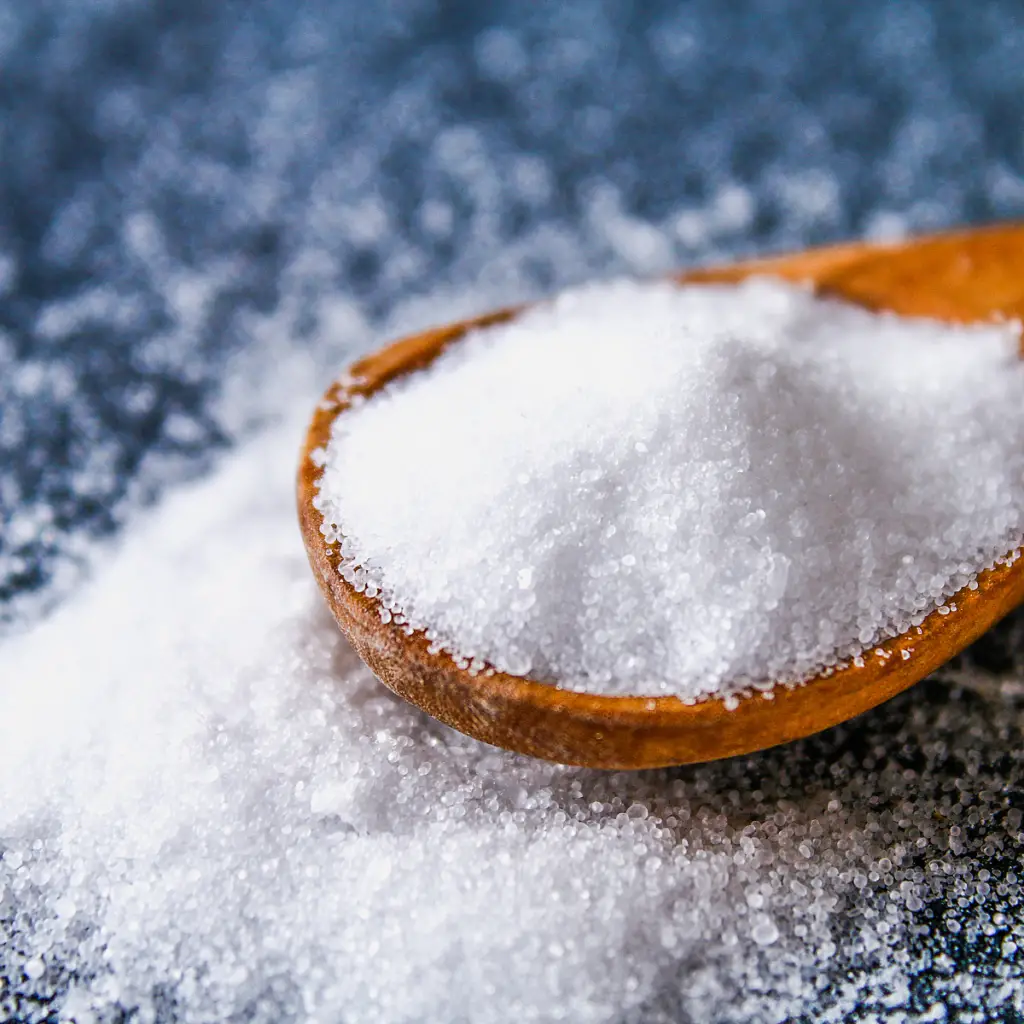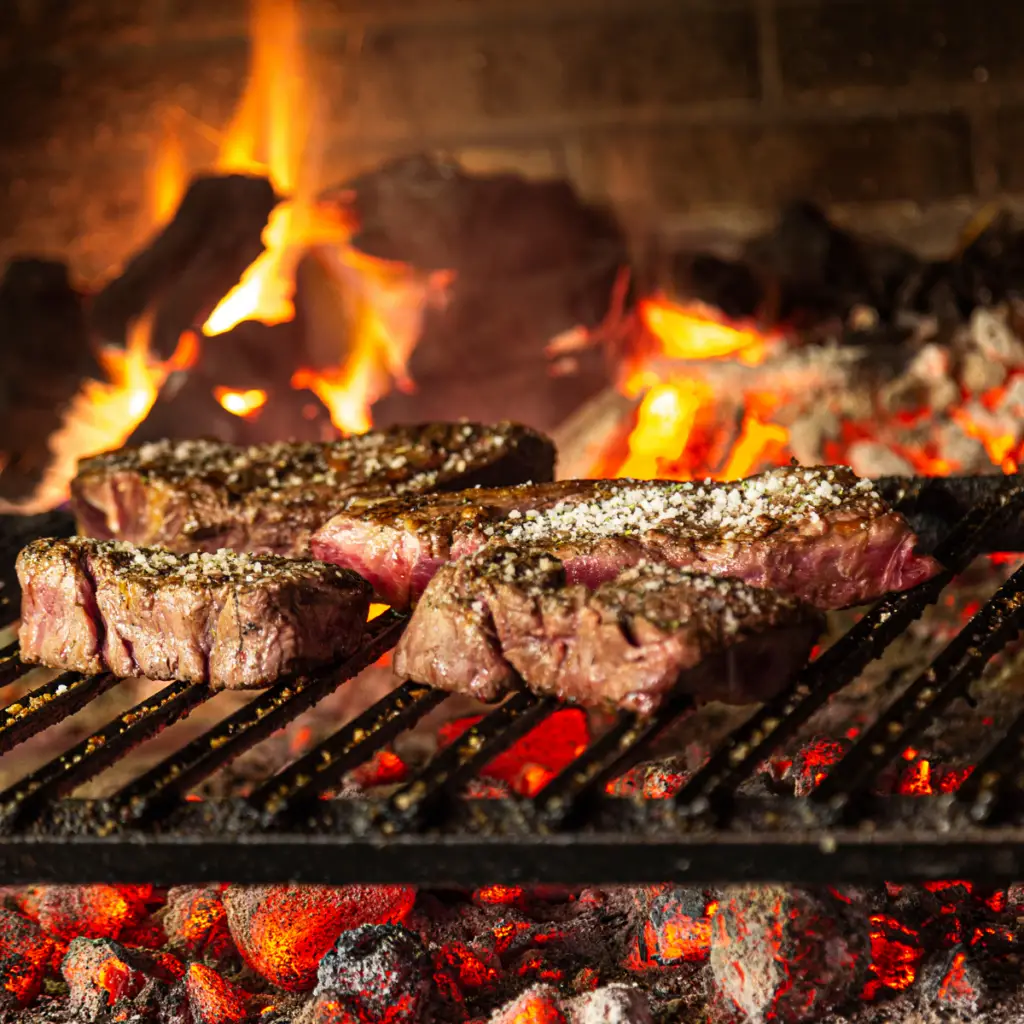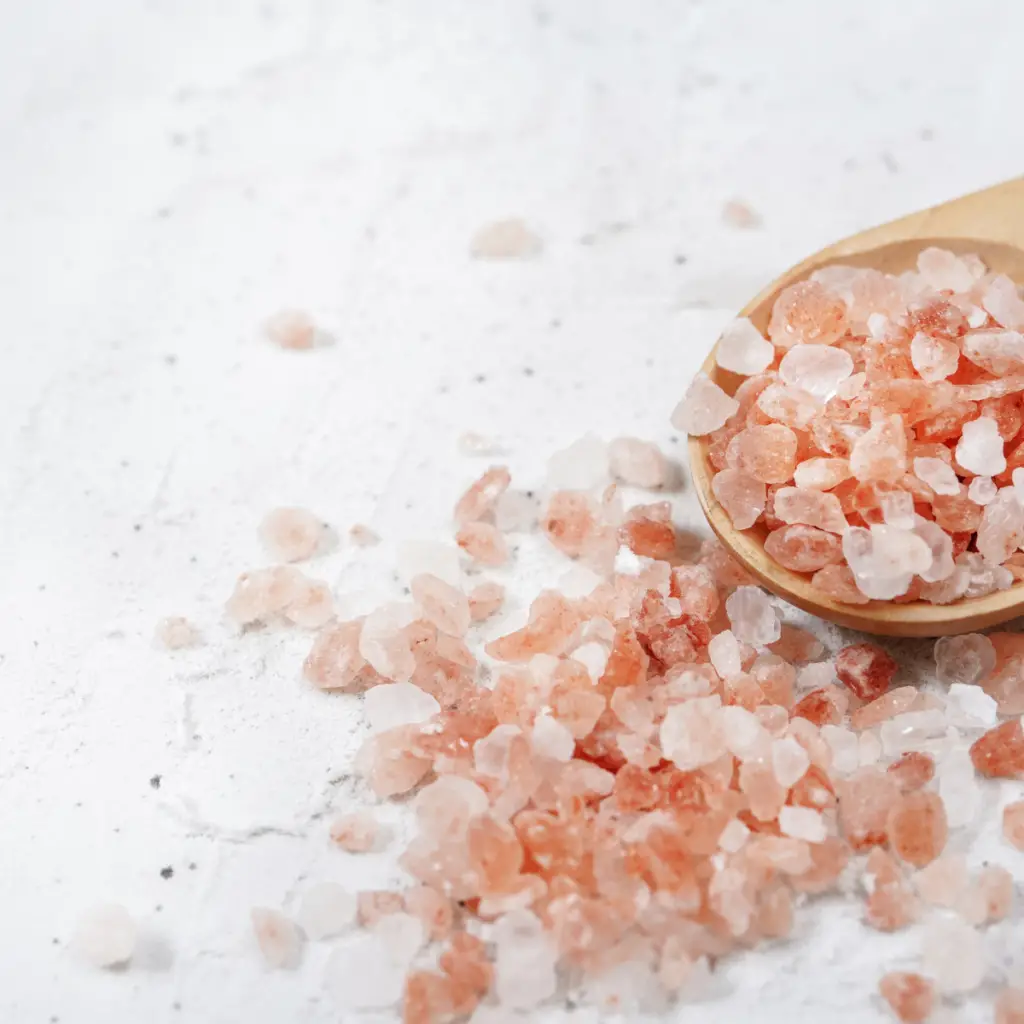Salt is a common kitchen condiment used all over the world. We often use salt when cooking where there are open flames. So we can’t help but wonder: is salt flammable?
Salt is a staple in all kitchens. Whatever kind of food you’re into, there’s likely some salt in it. Steaks, salads, pasta, and meat dishes all require salt. Even favorite sweet treats like cake and ice cream require salt to make.
We use salt on a daily basis and put it on nearly every food, and it’s good to know if salt will indeed catch fire?
The short answer is salt is not flammable. Salt won’t easily catch fire because it requires extremely high temperatures to burn.
In this post, we will answer the following questions:
- What is salt?
- What is the melting and boiling point of salt?
- Does salt extinguish fire?
- How does salt react to fire?
- What happens when you burn salt?
What is Salt?

The common salt we use for cooking, also called table salt, is composed of two constituent elements: sodium and chlorine. Sodium is the positively charged ion, while chlorine is negatively charged. We put them together and we have sodium chloride, now an electrochemically neutral compound.
It is interesting to know that both sodium and chlorine are reactive chemical compounds. But because they are bonded so strongly with each other, it takes a good amount of energy (such as heat) to break them up. This makes salt an even more interesting chemical compound.
Is Salt Flammable?

Now let’s answer this pressing question: is salt flammable?
No, salt is not flammable.
Salt won’t easily catch fire because it requires extremely high temperatures to burn. Such a high temperature won’t easily occur in your home when you’re cooking, so you don’t have to worry about burning salt. Even if it gets heated enough to the point that salt burns, salt burning would be the least of your worries.
What is The Melting Point of Salt?
Salt is not flammable under normal circumstances because it has a very high melting point. Table salt or sodium has a melting point of 800 degrees Celcius or 1472°F. For reference, the melting point of silver is just a little bit higher at 961.8 °C while gold melts at 1,064 °C. From that, you can already imagine that it takes high temperatures to truly melt salt.
Why is this so?
Remember that salt is composed of both positively and negatively charged ions that are bonded so strongly with each other. Such a strong electrostatic bond makes salt an ionic substance. You need very strong heat energy to break those ions apart in order for salt to burn or combust.
Related Posts:
- Is Helium Flammable?
- Is Coconut Oil Flammable?
- What Is The Hottest Color of Fire
- Is Sap Flammable?
- Is Olive Oil Flammable? Does It Catch Fire Easily?
What is Salt’s Boiling Point?
Another interesting thing about salt is that it also has a high boiling point of 1,465 °C. It would be very unlikely for you to be able to heat salt at this extreme temperature in your ordinary life.
Let’s not forget that anything can catch fire if exposed to temperatures high enough to ignite and burn them. Fortunately for salt, you need intense heat to do this, and this level of heat does not really occur under normal circumstances in the kitchen.
Does Table Salt Burn?
Yes, the basic table salt burns, but only at excessively high temperatures. You need at least 800 degrees celsius to melt salt and you don’t really reach such temperatures easily while cooking.
Is Iodized Salt Flammable?
No, iodized salt is not flammable. The composition of iodized salt is nearly identical to that of table salt, only that iodized salt has small amounts of potassium iodide. You can expect both types of salt to be nonflammable.
Related Posts:
Is Rock Salt Flammable?
Rock salt is basically just unrefined salt, so it’s still pretty much the same as your good old table salt. Rock salt is not flammable, so you don’t ever have to worry about rock salt catching fire.
Does Pink Salt Catch Fire?

Pink salt or Himalayan rock salt is still salt as a chemical compound as it is mostly sodium chloride. However, pink salt does have some trace amounts of other minerals that give it a pinkish hue and are touted to provide extra health benefits. Still pink salt is just salt, so it won’t catch fire unless exposed to very high temperatures.
Does Salt Extinguish Fire?
For minor kitchen fires, yes, you can use salt as a fire extinguisher. That’s because salt can repress oxygen, and fire needs oxygen to continue burning. However, you can’t expect that a sprinkle of salt will do the trick. You need to use a lot of salt to completely put out the fire. Of course, for larger fire incidents, you’d want to skip the salt and call your fire service department instead.
How Does Salt React to Fire?
One of the most mesmerizing things about salt is that is can it change the color of flames. For instance, if you are to throw some salt into a campfire, you’ll notice that it gives off a yellow flame. This does not imply that salt burns in the flame, it’s just heat creates a chemical reaction in the form of energy. You will see the yellow flame when burning salt, but after the fire has gone down, salt will still be there.
Can Salt Water Catch on Fire?
No, salt water won’t catch fire. In fact, you can use salt water to put out the fire. The only reason why most people don’t use salt water as a fire extinguisher is that salt water can rust and damage mechanical firefighting equipment.
Does Salt Burn?
Yes, salt can melt or burn, but you need to apply intense heat of at least 800 degrees celsius to do so. You don’t encounter such high temperatures under normal conditions, so it’s unlikely that you’ll burn salt in the kitchen or anywhere else.
What Happens When You Burn Salt?
When you burn salt under intense temperatures, a chemical reaction occurs where sodium and chlorine start to separate. The salt turns into a liquid form, which is called “molten salt.” Still, you need an extremely high temperature to break the powerful bond of sodium chloride and it’s not something that you can ordinarily in the kitchen.
Conclusion
Salt or sodium chloride is a nonflammable material and it does not easily catch fire under normal conditions. The same goes for all types of salt: table salt, rock salt, iodized salt, and pink salt. You can only possibly burn or melt salt when you apply enough heat that exceeds salt’s high melting and boiling point.

Leave a Reply